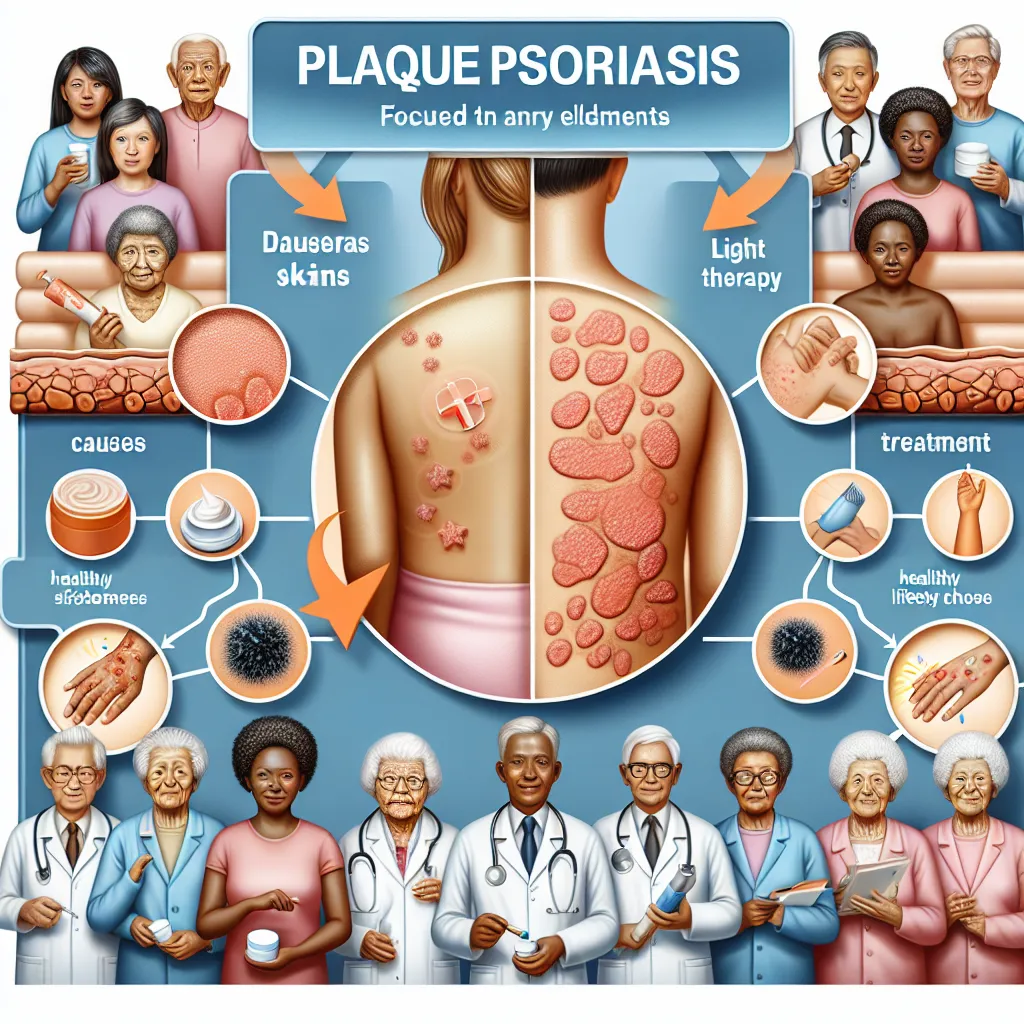Seniors Must Know this about Plaque Psoriasis (Must See Causes and Treatments)
Seniors Must Know this about Plaque Psoriasis (Must See Causes and Treatments)
Introduction
Plaque psoriasis is a chronic autoimmune condition that commonly affects seniors. It is characterized by the
development of raised, red, and scaly patches on the skin, known as plaques. These plaques can be itchy,
painful, and may cause significant discomfort to the affected individuals. It is important for seniors to
understand this condition, its causes, and available treatments to effectively manage plaque psoriasis and
improve their quality of life.
Causes of Plaque Psoriasis
While the exact cause of plaque psoriasis is unknown, it is believed to involve a combination of genetic,
environmental, and immune system factors. Seniors with a family history of psoriasis are more likely to develop
the condition. Additionally, certain triggers such as stress, infections, injury to the skin, smoking, and
certain medications may exacerbate the symptoms of plaque psoriasis.
Symptoms of Plaque Psoriasis
Seniors must be aware of the common symptoms associated with plaque psoriasis. These include:
- Red, raised patches of skin covered with thick, silvery scales
- Dry and cracked skin that may bleed
- Itching, burning, or soreness in the affected areas
- Nails becoming pitted, discolored, or separating from the nail bed
- Stiff and swollen joints
Diagnosis and Treatment
Upon experiencing any of the above symptoms, seniors should consult a dermatologist for an accurate diagnosis and
appropriate treatment plan. The dermatologist will examine the skin, review the medical history, and may perform
a skin biopsy to confirm the diagnosis of plaque psoriasis.
Treatment options for plaque psoriasis vary depending on the severity of the condition. Common treatments
include:
-
Topical treatments: These include creams, ointments, and lotions containing corticosteroids, vitamin D
analogues, or retinoids. These medications help reduce inflammation, itching, and scaling. -
Phototherapy: This involves exposing the affected skin to ultraviolet light under medical supervision.
Phototherapy can help slow down the growth of skin cells and reduce inflammation. -
Systemic medications: In severe cases, when topical treatments and phototherapy fail to provide relief,
dermatologists may prescribe oral or injectable medications such as methotrexate, cyclosporine, or
biologics. These medications work by targeting the immune system to control inflammation. -
Lifestyle modifications: Seniors can adopt certain lifestyle changes to manage plaque psoriasis. This
includes avoiding triggers such as stress, smoking, and excessive alcohol consumption. They should also
maintain a well-balanced diet, stay hydrated, and practice good skincare habits.
Coping with Plaque Psoriasis
Living with plaque psoriasis can be challenging, but seniors can take steps to cope with the condition and
improve their overall well-being:
-
Seek support: Joining support groups or connecting with others who have plaque psoriasis can provide
emotional support and valuable tips for managing the condition. -
Practice stress management techniques: Stress can worsen psoriasis symptoms. Seniors should explore
relaxation techniques such as meditation, yoga, or engaging in hobbies to reduce stress levels. -
Protect the skin: Seniors should avoid harsh soaps, hot showers, and excessive scrubbing, as these can
irritate the skin. Moisturizing regularly and using gentle skincare products can help soothe the
symptoms. -
Follow the prescribed treatment plan: It is crucial for seniors to adhere to the treatment plan
recommended by their dermatologist. This includes taking medications as prescribed, attending follow-up
appointments, and reporting any changes or side effects.
Conclusion
Plaque psoriasis can significantly impact the lives of seniors, causing discomfort and affecting their
self-esteem. By understanding the causes, symptoms, and available treatments for plaque psoriasis, seniors can
actively manage the condition and improve their quality of life. Seeking medical help, following the prescribed
treatment plan, and adopting healthy lifestyle habits are essential steps towards effectively managing plaque
psoriasis and minimizing its impact on daily life.

